As part of our commitment to a better world, we ensure that all our visitors plant a tree, among other initiatives. Over the past eight years, focus has been on both fruit and medicinal trees. From the older trees, we are enjoying the fruits, and have been privileged to serve the same fruits to our guests. As for all our visitors of 2022, there is good news! Your trees have started flowering!
How do We Promote Wildlife Conservation through Traditional Hunting?
When I tell our clients that we hunt to save wildlife, many ask me how this happens. We were a group of traditional hunters and the only incentive we had to quit the practice, passed down from several generations, was tourism!
Conservationists believe that Uganda has more wildlife outside of protected areas than it has in the protected areas yet attention is only paid to the few animals in the protected areas.
There are quite a number of people, especially in the country-side who depend on hunting as a fulfillment of cultural heritage, source of food and money. These people do not target animals in the protected areas but those outside such areas. This practice, coupled with destruction of animal habitats due to population pressure, has led to massive loss of wildlife. But at Sights and Sounds of Africa Safaris we feel that there is a better way to deal with these wild animals.
In what we call traditional hunting experience, visitors travel to Entanda, a rural area that is about 1.5 hours’ drive from the capital for a hunting expedition. We travel through the hills and wetlands, homesteads and gardens, and forests searching for animals. We do everything exactly the way we used to hunt - we even catch the animal but safely release it back to the wild. The idea is to teach the visitors a lesson about hunting, how it was done, the norms associated with it, and most importantly the dangers of hunting. By releasing the animals back to the wild, we give several animals a chance to life, reproduce and grow in number. Gradually, the animal populations will grow again as the hunters now look at them as a sustainable source of income. Indeed, animals have become more common since 2013, now having to deal with increased wild animal populations in our area. These are particularly Tsavo cats, antelopes, pangolins and cane rats. More hunters from other villages have joined Entanda, seeing that membership benefits far outweigh the benefits of hunting.
As part of the move to restore our environment, we now rear bees, have planted more trees and all members quit using industrial herbicides, resorting to use of organic practices. It is now compulsory for every visitor to Entanda to plant a tree. We name the tree after the visitor and keep this record for life. Of course, from your entrance fees (less than $50 per person), the members of Entanda count numerous achievements.
Further Reading
If you have been to Fortportal, perhaps you have seen those magnificent tall eucalyptus trees in the Mpanga valley opposite the Toro Golf course. Those trees were planted in 1954 the very day Queen Elizabeth visited Tooro and perhaps after visiting and naming after herself Queen Elizabeth National Park.
The President of Uganda on 20th September 2020 announced the opening of Entebbe International Airport and land borders. This came after a period of six months since tourism was put at a standstill due to COVID-19 pandemic that forced these tough but necessary precautions on everybody. A few days later, on the 25th of September, Hon. Tom Butime, the Minister for Tourism Wildlife and Antiquities officially relaunched primate tourism in Uganda. You...


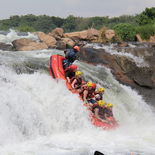
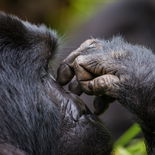
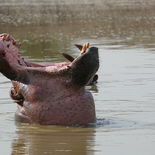
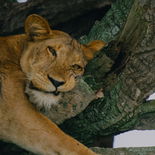
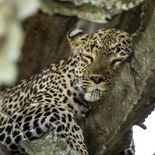
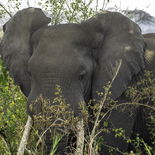
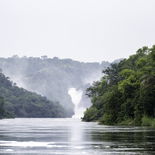
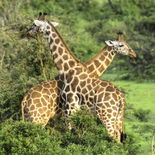
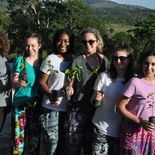
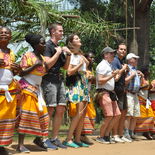

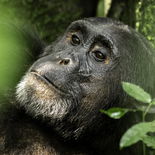
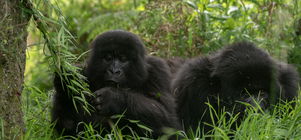
Share This Post